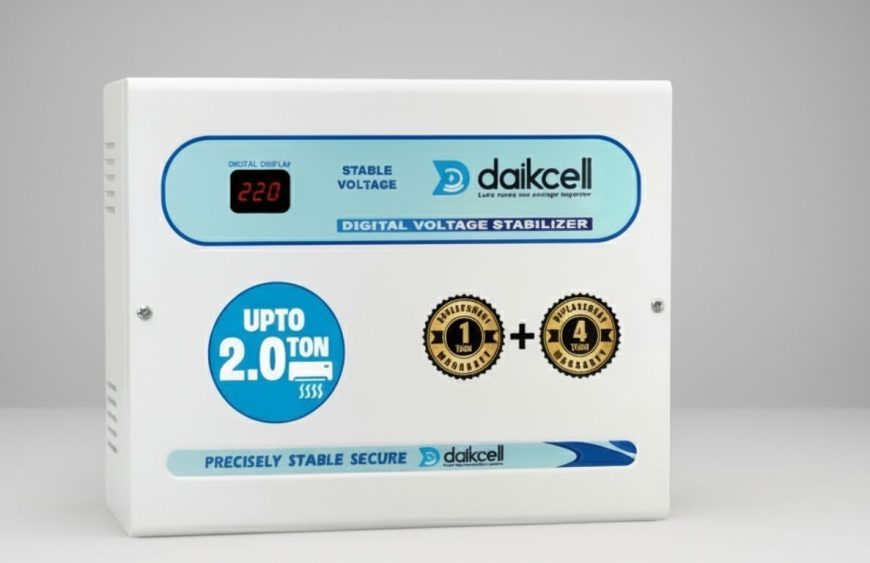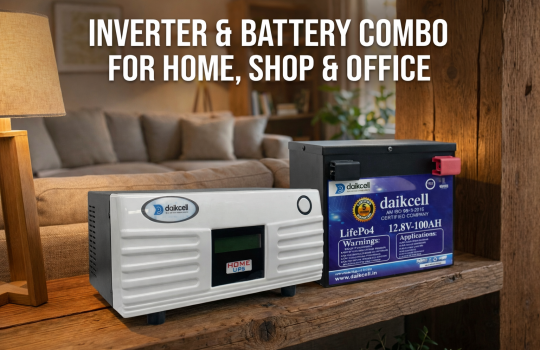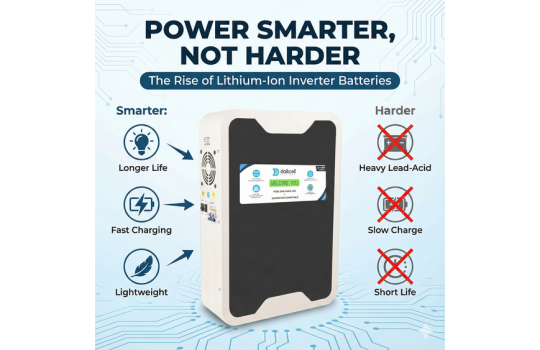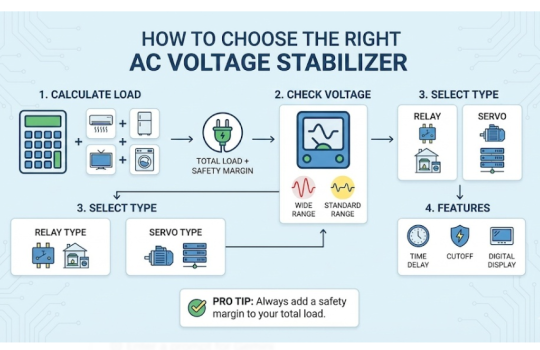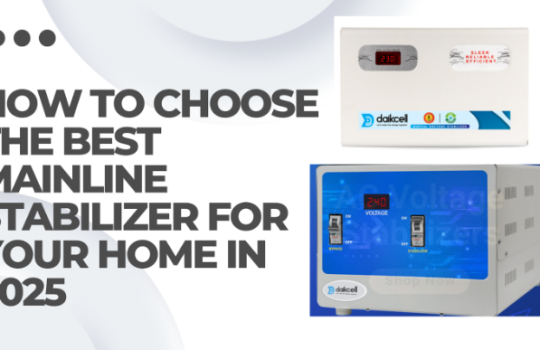To us, our AC has become a lifesaver, especially during the hot summers. However, their usage also comes with a hidden risk, which includes irregular power supply. Although power supply and AC usage are closely correlated, voltage fluctuations pose a risk to the AC’s functionality.
There’s a simple and effective remedy for keeping one’s AC safe and working at its best: the AC stabilizer. In the subsections below, we will discuss the importance of AC stabilizers, their functions, and how to choose the right one for your air conditioning unit.
What is an AC Stabilizer, and How Does It Work?
The AC and the electrical supply have a stabilizer that acts as a smart guardian between the two.
- Keeping Voltage Balanced.
ACs and other electrical appliances are easily affected by too much or too little voltage. Voltage is either supplied in excess (overvoltage) or is supplied defectively (undervoltage). Neither situation brings benefits; an AC stabilizer conserves the incoming voltage, ensuring that AC works with the right and safe level of electricity.
- Keeping AC’s Core Component Safe
To ensure the AC works fine, a stabilizer has to protect its delicate parts, which include the compressor and the PCB. The stabilizer has to protect crucial components and fine functions from sudden voltage.
Top 4 Reasons Your AC Needs a Stabilizer
- Protection Against Voltage Fluctuations (High & Low Voltage)
- When there is too much voltage, the compressor might burn out, or the circuit board might get damaged beyond repair.
- When there is too little voltage during the AC operation, lethargy manifests, causing the unit to overheat and the performance of the system to diminish.
- Stabilizers mitigate these dangers and defend your AC unit from the repercussions of instant power supply shocks.
- Enhanced Cooling Efficiency & Performance
Your AC gives the desired cooling effect only when the power supply is steady. When the power supply is unsteady, the performance of the appliance drops. The power supply stabilizer makes sure that the AC attains the voltage needed during the most scorching afternoons, ensuring it continues to function optimally.
- Increased Lifespan of Your Air Conditioner
When the condensers are under heavy voltages, the appliance used to cool the space does so over time. The heavier the unit is, the more damages are caused to the appliance, and the older it the appliance is. This is caused by the stabilizer becoming ineffective and failing to contain the balance.
- Prevention of Costly Repairs
An AC might get destroyed beyond repair, which increases the chances of becoming too hot too quickly, causing chills. A prominent part might also get damaged, like the circuit board. This brings damage to the AC, and repeated service calls have to be made. A stabilizer damages the AC less and keeps the person cool without huge service call dues.
How to Choose the Best Stabilizer for Your AC
A. Understanding Tonnage
The stabilizer must be compatible with the capacity of the AC.
- Example: Adjusting the stabilizer to accommodate a 1.5-ton AC requires a stabilizer.
- Poor working stabilizers tend to complete the task.
B. Main Points to Look For
1. Wide Voltage Range
- Protection is important for places where the voltage tends to change a lot.
- In all situations, a wider range ensures that the AC is safe.
2. Time Delay System
- After power is restored, the system provides a delay that protects the compressor from sudden surges.
3. Overload Protection
- Ensures the system is safe by cutting the power to heavily loaded areas.
4. Digital Display
- You can see the monitor that displays the input and output voltage.
C. Stabilizer for Inverter AC vs. Non-Inverter AC
- Inverter ACs: More sensitive and bow to advanced electronics. They require stabilizers intended for constant shifts in voltage.
- Non-Inverter ACs: Neither sophisticated nor too advanced, but their voltage swings are just as dangerous. A stabilizer ensures smooth operation here as well.
V. Key Questions Answered
1. Will a stabilizer for my new air conditioner become a necessity?
Yes. A stabilizer is necessary, as built-in stabilizers rarely offer sufficient range. Having an external stabilizer is helpful, especially in places where power is irregular.
2. What will happen if I use my AC without a stabilizer?
Your AC will encounter a much greater risk of a failed compressor, a burned-out PCB, and lower overall effectiveness. With time, these issues will dramatically lower the unit’s overall lifespan.
3. How much of a stabilizer do I need for a 1.5-ton AC?
Pick a stabilizer that clearly states that it is a 1.5-ton split AC and above. Always go a little higher than your AC’s power needs.
4. What is the difference between a stabilizer for inverter and non-inverter ACs?
The stabilizers for inverter ACs are made to manage changing frequency and complex circuits.
The non-inverter stabilizers are made to provide only basic protection for over- and under-voltage.
5. What are the most important features to look for when buying an AC stabilizer?
Wide voltage range, time delay system, digital monitoring, and overload protection.
6. Does a stabilizer add to the electricity bill?
No. Stabilizers use much less electricity than your AC unit and so do not add to the load. Instead, they allow the AC to operate much more efficiently.
Conclusion
Air conditioners are no longer only a source of comfort but a necessity. While utility savings with unstable electricity are a real threat and can cause damage to the AC, the benefits are invaluable.
An AC voltage stabilizer guarantees
- An effective safeguard against voltage surges and drops
- Improved efficiency in cooling
- Increased durability of your device
- No risk of unexpected malfunctions
The question of what stabilizer is suitable for a 1.5 ton inverter AC, or what is the best stabilizer for a 1.5-ton split AC, is easily answerable—reliable stabilizers are a necessity, not a luxury.
Avoid waiting for a breakdown and safeguard your AC immediately.

